The 2018 offseason is shaping up to be a fascinating game of quarterback musical chairs. During a typical offseason, we usually see about seven teams either replace their current passer or draft a player who they expect to eventually take over as their long-term quarterback. Excluding the injuries that forced the Colts and Dolphins to make moves before the 2017 season, there were six teams -- the 49ers, Bears, Browns, Chiefs, Jets and Texans -- that dramatically changed their quarterback calculus this past offseason.
By the time this offseason is over, we could see as many as 11 teams change either their current or long-term QB1. And that's assuming we don't get any veteran retirements or teams like Kansas City trading up to grab a quarterback a year or two before anyone expected. There are six teams that are all but guaranteed to come up with a new answer under center. That's rare.
What's even rarer is the crop of quarterback options available. Players who don't normally hit the market might be available this offseason, which could very well lead to some massive, franchise-shifting bets. Front offices will simultaneously be scouting a quarterback class that could include as many as five signal-callers worthy of a first-round pick in the 2018 NFL draft. If you're planning on finding a new quarterback over the next several seasons, this is probably the year in which to make your move.
Teams will have to prepare to pursue multiple quarterbacks on several fronts and be willing to settle for their second or third choice. As we break down the veteran market to come in order of how the league would perceive their desirability, though, it all starts with the rarest commodity: a franchise quarterback in the prime of his career who might be available for free.
The franchise QB
 Kirk Cousins, Washington
Kirk Cousins, Washington
2018 status: Unrestricted free agent
This doesn't really ever happen. Teams find passers in free agency who slip through the cracks, like Tyrod Taylor. Peyton Manning hit the market after what could have been career-ending neck surgery. The last time we saw a quarterback as productive as Cousins hit the market before turning 30 was when Drew Brees left the Chargers after the 2005 season. Even then, though, Brees was coming off a torn labrum in his throwing shoulder, one which famously led the Dolphins to choose Daunte Culpepper over the guy who would subsequently make his Hall of Fame case in New Orleans.
The big question is whether Washington goes where no team has gone before under the current CBA and keeps Cousins off the market with a third franchise tag. Doing so would guarantee Cousins $34.5 million for 2018, adding up to a total of $78.4 million over those three franchise tags. Washington could theoretically afford to eat the cost of a third tag, but it would only push the Cousins problem a year into the future and make Cousins the most expensive quarterback on paper by a significant margin, given that no other passer has a 2018 cap hit over $26.5 million.
General manager Bruce Allen also could slap Cousins with the transition tag, which would lock him in for a more palatable $28.8 million next season. The problem is that the transition tag doesn't offer any compensation and would open up Washington to a bevy of offers from teams with far more cap space than what Washington will have.
The Jaguars, for example, could cut quarterback Blake Bortles, running back Chris Ivory and receiver Allen Hurns, and restructure defensive tackle Malik Jackson's deal, and carve out $72 million in cap space. They could offer Cousins a deal with a huge 2018 roster bonus and base salary and eat an enormous cap charge in excess of $50 million in doing so, which Washington wouldn't be able to match without gutting the rest of its team. Washington could simply sign Cousins to a long-term deal, but given that its offer from July wasn't competitive, it's tough to see why its stance would have changed.
Simultaneously, though, the market for Cousins looks totally different than it did a year ago. After the 2017 offseason, it seemed like the two teams that would compete for Cousins in free agency were a pair of NFC West rivals, with both the 49ers (Kyle Shanahan) and Rams (Sean McVay) hiring a pair of ex-Washington offensive coordinators. Now, with Jimmy Garoppolo and Jared Goff both playing like stars, those teams are out of the quarterback market.
Plenty of teams will be interested in Cousins, but leaving Washington might not seem to be quite as compelling without a familiar face in charge. If Washington transition-tags Cousins and forces an interested team to make a huge payment in Year 1, he'll be limited to organizations that either have/are capable of clearing a lot of cap space immediately. The Jaguars would be in play. The Browns and Jets can afford anyone. The Vikings have $60.5 million to play with but also have a bevy of young talent about to hit free agency. The Bills, Broncos and Giants would really need to stretch to have any real shot at clearing out the cap room required for a $45 million cap hit in 2018. Anything less and Washington probably matches.
If Cousins hits unrestricted free agency, though, anything goes. The Dolphins are in awful cap shape after making a series of terrible decisions this past offseason, but as a team that routinely offers players an additional year of guarantees, they might very well offer Cousins four or even five years of guaranteed upper-echelon quarterback money. The Cardinals could enter the running. Maybe the Steelers even look at Cousins if Ben Roethlisberger calls it quits. The going rate for a quarterback as good as Cousins -- if there even is one -- is multiple first-round picks. Teams are going to throw caution to the wind if Cousins comes free, and they might not be wrong to do so.
The not-going-anywhere QBs
 Drew Brees, New Orleans Saints
Drew Brees, New Orleans Saints
2018 status: Unrestricted free agent
 Jimmy Garoppolo, San Francisco 49ers
Jimmy Garoppolo, San Francisco 49ers
2018 status: Unrestricted free agent
Two quarterbacks at different points of their careers, both Brees and Garoppolo are going to be staying in their current locales this offseason. Brees had all the leverage in the world when negotiating with the Saints before the 2016 season and instead chose to give in, taking a one-year, $24.3 million extension that places $18 million in dead money on the Saints' 2018 cap. With Brees not wanting to uproot his family and New Orleans looking like a possible Super Bowl contender, there's no reason for him to leave town. He'll likely sign another short-term deal and the Saints will kick the post-Brees cap problems another year down the line.
One interesting scenario, though: What if New Orleans wins the Super Bowl and Brees decides to retire on a high note? The Saints would take that trade, of course, but they would be down to $21 million in cap space next year with players such as Kenny Vaccaro and Alex Okafor still unsigned. Would the Saints hope to draft a quarterback like Louisville's Lamar Jackson with the 32nd pick, or would they go back to their cap disasters of years past and squeeze a veteran onto what would be a competitive roster?
Garoppolo, meanwhile, has excelled since taking over as the starter in San Francisco. The 49ers aren't letting him go anywhere, but the question for general manager John Lynch is about sample size. Has he seen enough to lock up Garoppolo to a long-term deal after two starts with the Patriots and three with the 49ers? Or does he resist the urge to try to save money with an extension and slap Garoppolo with the franchise tag this offseason to get another year of data on his would-be starter? (Let's assume the scenario I laid out in which Lynch franchises Garoppolo, signs Cousins, and then deals Garoppolo for multiple first-round picks is off the table.)
The trade candidate QB
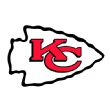 Alex Smith, Kansas City Chiefs
Alex Smith, Kansas City Chiefs
2018 status: Under contract for $17 million
When the Chiefs traded up to grab Patrick Mahomes in April's draft, Smith's days in Kansas City were numbered. The departure of general manager John Dorsey shortly thereafter doesn't change things, given that coach Andy Reid doesn't have any qualms about trading away a quarterback. Remember that Reid dealt Donovan McNabb within the division to Washington after a Pro Bowl season despite seeing a combined three starts in Eagles colors from backups Kevin Kolb and Michael Vick.
The fact that Smith has subsequently enjoyed his best season as a pro in 2017 only strengthens Reid's bargaining position. With two games to go, Smith leads the league in passer rating, interception rate and adjusted yards per attempt. He's signed for one more year at $17 million, but whichever team acquires him will likely look to give the 33-year-old an extension. Given how Smith relies so heavily upon accuracy in the short and medium range, it wouldn't be difficult to see him aging well into his late 30s.
My suspicion is that Reid will look to get a second-round pick for Smith, even if it means sending a late-round selection back as part of the swap. That seems like a lot to pay for a quarterback Chiefs fans want to bench on an annual basis, but even if you assume Smith is merely average, a lot of teams would be quite happy with an average starting quarterback.
The Broncos, for one, might very well be in the thick of the AFC West race if they had Smith as opposed to their flotsam at quarterback. Offensive coordinator Bill Musgrave has built a playoff offense around Christian Ponder (and Adrian Peterson) before, so it's not like he can't make hay with a former first overall pick. Washington might consider dealing for Smith if it loses Cousins. Smith would be a perfect fit for the Jaguars if they move on from Bortles because of what they're looking for from a quarterback. He'd also fit the Vikings' current scheme if they don't end up keeping any of the passers they have on the roster.
The finally-coming-good QB?
 Blake Bortles, Jacksonville Jaguars
Blake Bortles, Jacksonville Jaguars
2018 status: Fifth-year option available at $19.1 million
As someone who has been skeptical of Bortles for virtually his entire career, let me echo the sentiments you've read elsewhere: He's playing fantastic football. The numbers are great -- over his past three games, Bortles leads the league in yards per attempt (9.9), passer rating (128.6) and Total QBR (85.5) -- and they're matched by how he looks on the field. Bortles' numbers in the past were a product of garbage-time chucks to Allen Robinson. Robinson is not around, and even with Marqise Lee sidelined last week, Bortles was dropping perfect throws into guys like Keelan Cole and Jaydon Mickens. Bortles deserves all the plaudits he's getting.
Of course, the tough part in evaluating Bortles is that he has done this over the past three weeks against teams -- the Colts, Seahawks and Texans -- that have been decimated by injuries; you could make one hell of a defense out of the guys who are done for the year across those three teams. Bortles already was playing the best football of his career before this three-game stretch, though, and it's undeniable that he simply looks like a much more confident and consistent quarterback in terms of his decision-making and mechanics than he did previously.
Three weeks ago, though, virtually everybody was signing up Eli Manning for a reunion with Tom Coughlin in Jacksonville next season. Three months ago, we were all sure Bortles was done in Florida. I suspect this will come down to how Bortles performs in the playoffs. If he plays fine and the Jaguars either win the Super Bowl or lose for reasons unrelated to their passing attack, he'll be back. If he reverts to form and lays a Brian Hoyer-esque stinker at home in the wild-card round, though, the Jaguars probably will look to upgrade this offseason.
As heavily as the Jags were criticized by people like me for handing Bortles a fifth-year option on his deal, it might end up working out brilliantly for Jacksonville. If Bortles continues to play well, Coughlin will have the ability to evaluate him for a fifth season without having to commit to a long-term deal. The option also increases Jacksonville's leverage if the team wants to sign Bortles to an extension, given that the Jags would have him under reasonable cost control through 2018 and then have the option of a franchise tag in 2019.
In the end, it might come down to a question of personnel power. General manager Dave Caldwell drafted Bortles, and you suspect his side of the front office has always believed in Bortles turning into a franchise passer. Coughlin arrived after Bortles struggled for several years and has no meaningful attachment to the pick. If Coughlin does have final say on football decisions, it seems less likely Bortles will be the guy in Jacksonville in 2018.
If Bortles does leave, some team is going to take a shot on his athleticism and success in 2018. He's an obvious fit for the Cardinals, who liked him coming out of UCF and need someone with athleticism and arm strength in Bruce Arians' downfield passing attack. The Bills, who covet a traditional pocket passer, also could look Bortles' way given that the 25-year-old is essentially the polar opposite of Tyrod Taylor.
The Minnesota Vikings' QBs
 Sam Bradford, Teddy Bridgewater and Case Keenum
Sam Bradford, Teddy Bridgewater and Case Keenum
2018 status: All are unrestricted free agents
I don't know that I've ever seen this happen before. The Vikings are going to the playoffs with three quarterbacks on their roster who will likely start multiple games in 2018, and none of them are under contract for next season. I'm also not sure who the Vikings will (or should) try to retain to take snaps for them. It's a situation that any team with a settled quarterback situation is happy to avoid, and any team lacking a quarterback would look at enviously.
Of the three, it seems easiest to eliminate Bradford, even if he arguably has the most upside. It's tough for the Vikings to commit to a 30-year-old with multiple knee injuries for any sort of long-term deal, and yet, it wouldn't be a surprise to see Bradford get meaningful guaranteed money on the open market. Teams with aspirations of competing, like the Dolphins and Giants, could look at Bradford as a starter if they dump their incumbents. The Cardinals have taken risks on players with injury histories before and have a need under center. The Browns could even go after Bradford as a bridge quarterback to give whomever they take with the first overall pick time to hide from coach Hue Jackson.
It seems far likelier, on the other hand, that Bridgewater will re-sign in Minnesota, at least on a one-year deal. He's not going to get much playing time the rest of the way barring an injury to Keenum, so Bridgewater would be hitting the market two years after his last meaningful reps in a league that didn't really value him highly in the 2014 draft. His best bet is to rebuild his value in purple and gold before hitting the market in 2019 or signing an extension next year.
Keenum, of course, is the most difficult evaluation of all. A year ago, Keenum was a backup on one of the worst teams in football and could muster only a one-year, $2 million deal in free agency to be a clear backup. He also has an identical passer rating in 2017 to Jared Goff and a better Total QBR than Tom Brady. We have 777 pass attempts suggesting Keenum is an anonymous backup quarterback and 427 more implying he's a superstar.
What do you do with that if you're general manager Rick Spielman? Are you willing to pay in excess of $20 million to franchise Keenum and see if he can do it again? Do you offer him a Tyrod Taylor-style deal in which the Vikings can get out of the deal after one year if Keenum reverts to form? Or do you let another team take the gamble, re-sign Bridgewater, and try to convince one of the quarterbacks with a longer track record of success to come play with a perpetually dominant defense and two of the best wideouts in the league? Minnesota has so many mouths to feed on defense and along that offense that it might need to pay its quarterback next to nothing to keep everyone else around.
The statistical darling QB
 Tyrod Taylor, Buffalo Bills
Tyrod Taylor, Buffalo Bills
2018 status: Under contract for $16 million
It's quite clear that the Bills don't have any interest in retaining Taylor for the long term, given that they forced him into a pay cut this offseason and benched him in November for rookie fifth-rounder Nathan Peterman. It took one of the worst starts in league history to push Taylor back into the lineup, so unless Taylor sneaks the Bills into the playoffs for the first time this century and wins a wild-card game, it seems likely he'll be moving on this offseason.
His market will be fascinating. A good organization will take a look at the things Taylor can do as a runner and as the rare downfield passer who virtually never turns the ball over and see the possibility of adding an above-average quarterback at a bargain. Bad organizations will look at Taylor's relative weaknesses and the effort required in building an offense around him and convince themselves to go after the tallest guy they can find for another year.
I get the feeling a lot of teams might see Taylor as a backup plan, which means his market might not materialize quickly. It's difficult to find an obvious fit for Taylor as an unquestioned starter, which means he might have to settle for a job as a bridge to a younger starter in waiting (in Cleveland or Kansas City), or compete for the No. 1 job with an inferior option for a team that doesn't have a long-term solution (like the Jets or Broncos).
The former franchise QBs
 Eli Manning, New York Giants
Eli Manning, New York Giants
2018 status: Under contract for $16 million
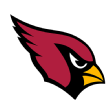 Carson Palmer, Arizona Cardinals
Carson Palmer, Arizona Cardinals
2018 status: Under contract for $14 million
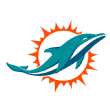 Ryan Tannehill, Miami Dolphins
Ryan Tannehill, Miami Dolphins
2018 status: Under contract for $17.5 million
It's crazy that we've already mentioned nine quarterbacks before getting to these guys. Manning might represent the best veteran quarterback available some offseasons, even given that he has slipped some at age 36. Truthfully, he declined more between 2015 and 2016 than he has between 2016 and 2017, especially because he's playing behind one of the league's worst offensive lines and has been without his top two wide receivers for most of the season. The new Giants regime might want to keep Eli around to curry favor with the fans, but if they plan to draft a quarterback at the top of the first round -- they're projected to have the No. 2 overall pick -- it seems logical that they would move on from New York's long-term starter and give him a chance to try to win a third ring elsewhere.
While everyone has linked Manning to Tom Coughlin and the Jaguars, I've mentioned that Eli is not a great fit for what the Jags want to do. They want a quarterback who isn't going to turn the ball over, and while Manning has posted the lowest interception rate of his career, he's still going to throw more interceptions than that offense would care to see.
He's a better fit in Arizona, where Bruce Arians runs the sort of downfield passing attack Manning excelled in under Kevin Gilbride. Or Buffalo, which wants a pocket passer who will work from under center within the scheme. Or Denver, where Manning could throw 20 interceptions and still seem like a safer pair of hands than the Broncos' current options.
Palmer is also likely to either restructure his deal or be released. The Cardinals have a $20.7 million cap hold for him next year and less than $25 million in cap room with myriad holes on both sides of the ball. I suspect he's most likely to retire, but he could choose to be a backup on a winning team and chase a ring. Alternately, Palmer would make a lot of sense as a bridge quarterback for the Browns if Hue Jackson retains his job, assuming the Browns draft a quarterback with the first overall pick.
Tannehill is going to be a fascinating proposition this offseason. The former Texas A&M receiver has been missing for a full year since injuring his knee last December and re-injuring it during training camp. He also hasn't really grown much as a pro, having settled into a range as an average quarterback from 2014-16. He's good enough to win games with, but after 77 starts as a pro, has anyone ever gotten the sense that the 2012 first-round pick is about to make it to the Pro Bowl or win a championship?
A more conservative organization would stick with Tannehill, but the Dolphins are as aggressive as any team in football when going after talent, and if they sense an opportunity in free agency or in the 2018 draft, it would hardly be a surprise to see them push all-in for a new franchise quarterback. It's also fair to say that Miami could use the cap room -- the Dolphins would save $15.2 million and currently have just $14.1 million in cap room for 2018.
The upside play QBs
 AJ McCarron, Cincinnati Bengals
AJ McCarron, Cincinnati Bengals
2018 status: Unknown -- restricted free agent or unrestricted free agent
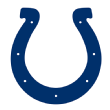 Jacoby Brissett, Indianapolis Colts
Jacoby Brissett, Indianapolis Colts
2018 status: Under contract for $760,076
These are the two quarterbacks on cost-controlled deals who should attract interest via trade, although the prevalence of a deep quarterback class will dampen their market this spring. McCarron might actually be an unrestricted free agent, pending a grievance he has filed with league arbitrators. If not, he'll be a restricted free agent, and the Bengals will almost surely tender him at the highest level. Given that they nearly dealt him to the Browns for a small cache of picks at the trade deadline, it would hardly be a surprise for the Bengals to ship McCarron off to the highest bidder this offseason.
If the Browns draft a quarterback, though, McCarron probably wouldn't be staying in Ohio. Teams that don't have a high enough pick to feel confident about drafting the quarterback they want could consider McCarron, which would put a team like the Cardinals into play.
The Colts, meanwhile, might choose to keep Brissett as a possible hedge against the return of Andrew Luck, or trade him and look to sign a veteran backup instead. There's no question Brissett has exceeded expectations in Indy and has some trade value, but would a team really send a second-round pick to the Colts for Brissett when a prospect like Lamar Jackson might fall into the second round on his own? I suspect Brissett ends up sticking around in Indianapolis.
The fill-in veteran QBs
 Josh McCown, New York Jets
Josh McCown, New York Jets
2018 status: Unrestricted free agent
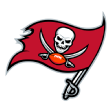 Ryan Fitzpatrick, Tampa Bay Buccaneers
Ryan Fitzpatrick, Tampa Bay Buccaneers
2018 status: Unrestricted free agent
You can throw guys like Blaine Gabbert into the mix here too, but McCown and Fitzpatrick are probably the best-case scenario for teams thinking about adding a veteran as an absolute stopgap without any better options available. McCown exceeded expectations with New York this season, producing solid numbers for a Jets team with limited skill-position talent and staying healthy for 13 games before eventually suffering a broken hand. He's going to have a job if he wants one, either as a temporary starter or as a ring-chasing backup. Fitzpatrick, likewise, should be in place for reps somewhere.
Let's stop here, even though guys such as Gabbert, Mike Glennon and Tom Savage are going to change teams and have NFL jobs in 2018. There's also a chance that we see Ben Roethlisberger retire, which would throw everything even further into disarray. It might eventually be boring, of course, if Cousins stays in Washington and every other veteran option falls into place where they are. If one domino falls in an unexpected way -- if Cousins goes to Jacksonville, or the Browns are more interested in taking Baker Mayfield in the middle of the first round than they are in drafting Sam Darnold at 1-1, or if someone wants to go all-in for McCarron -- we could see a drastically different NFL in 2018.
